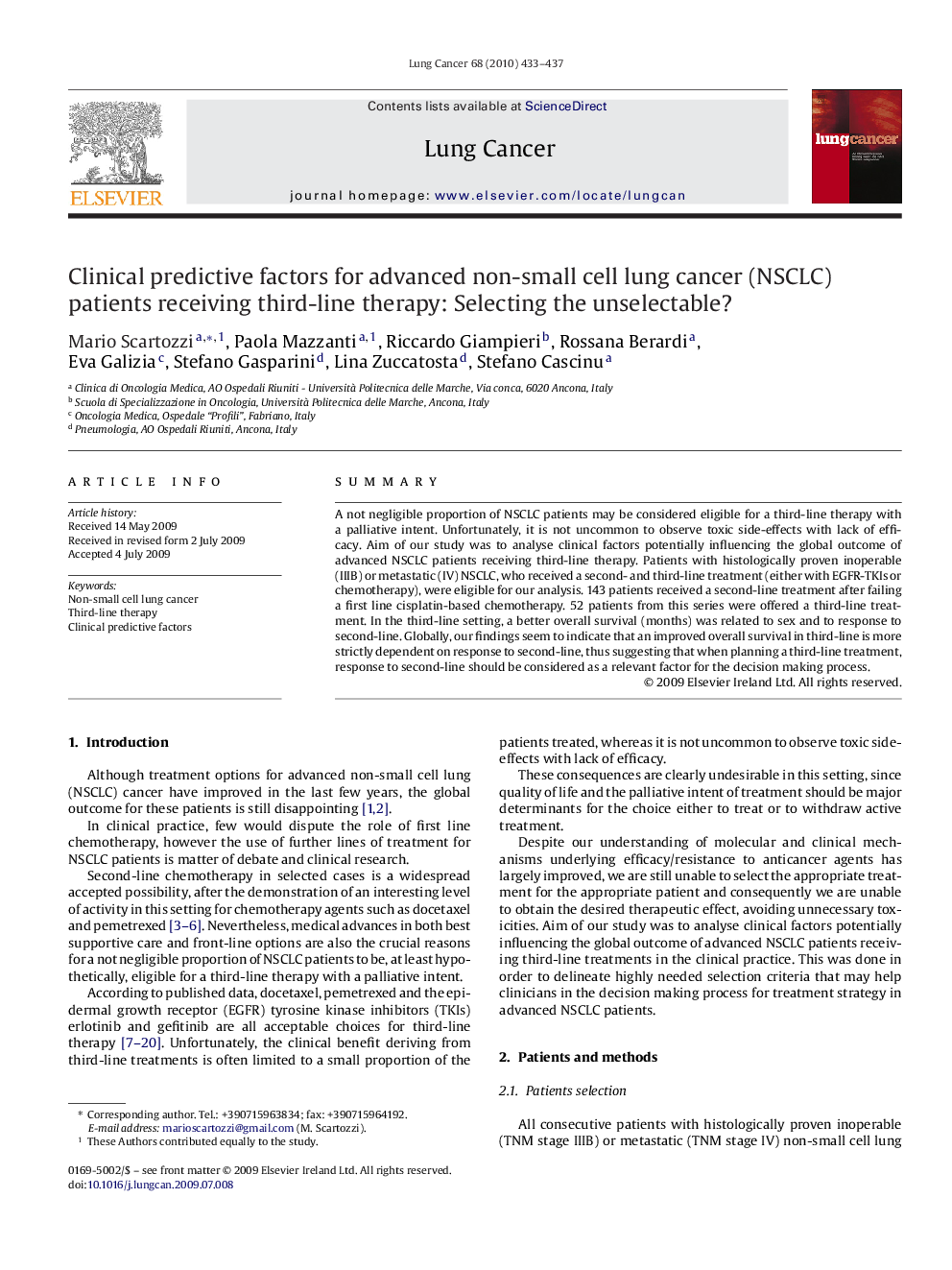| Article ID | Journal | Published Year | Pages | File Type |
|---|---|---|---|---|
| 2142547 | Lung Cancer | 2010 | 5 Pages |
SummaryA not negligible proportion of NSCLC patients may be considered eligible for a third-line therapy with a palliative intent. Unfortunately, it is not uncommon to observe toxic side-effects with lack of efficacy. Aim of our study was to analyse clinical factors potentially influencing the global outcome of advanced NSCLC patients receiving third-line therapy. Patients with histologically proven inoperable (IIIB) or metastatic (IV) NSCLC, who received a second- and third-line treatment (either with EGFR-TKIs or chemotherapy), were eligible for our analysis. 143 patients received a second-line treatment after failing a first line cisplatin-based chemotherapy. 52 patients from this series were offered a third-line treatment. In the third-line setting, a better overall survival (months) was related to sex and to response to second-line. Globally, our findings seem to indicate that an improved overall survival in third-line is more strictly dependent on response to second-line, thus suggesting that when planning a third-line treatment, response to second-line should be considered as a relevant factor for the decision making process.
